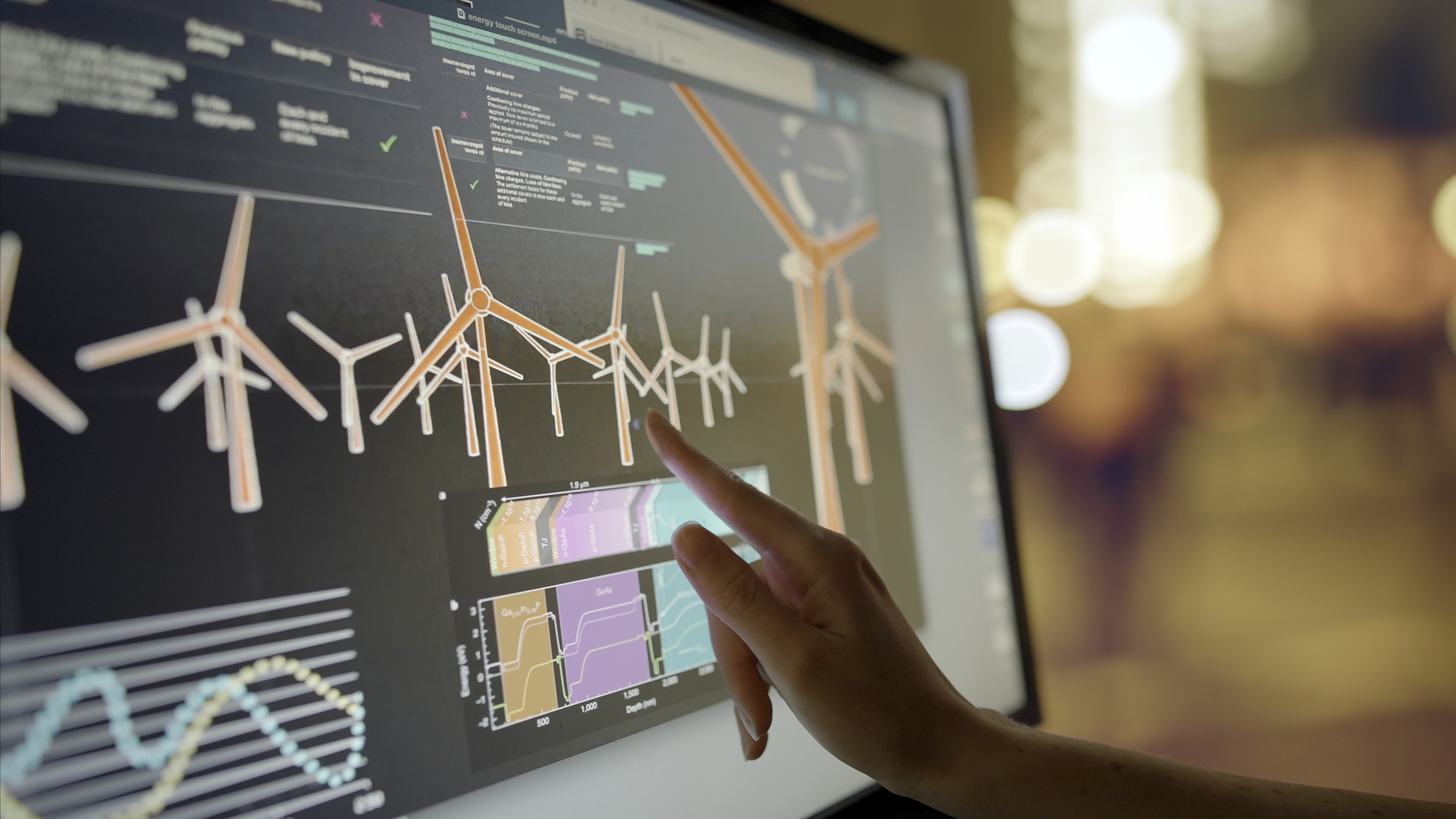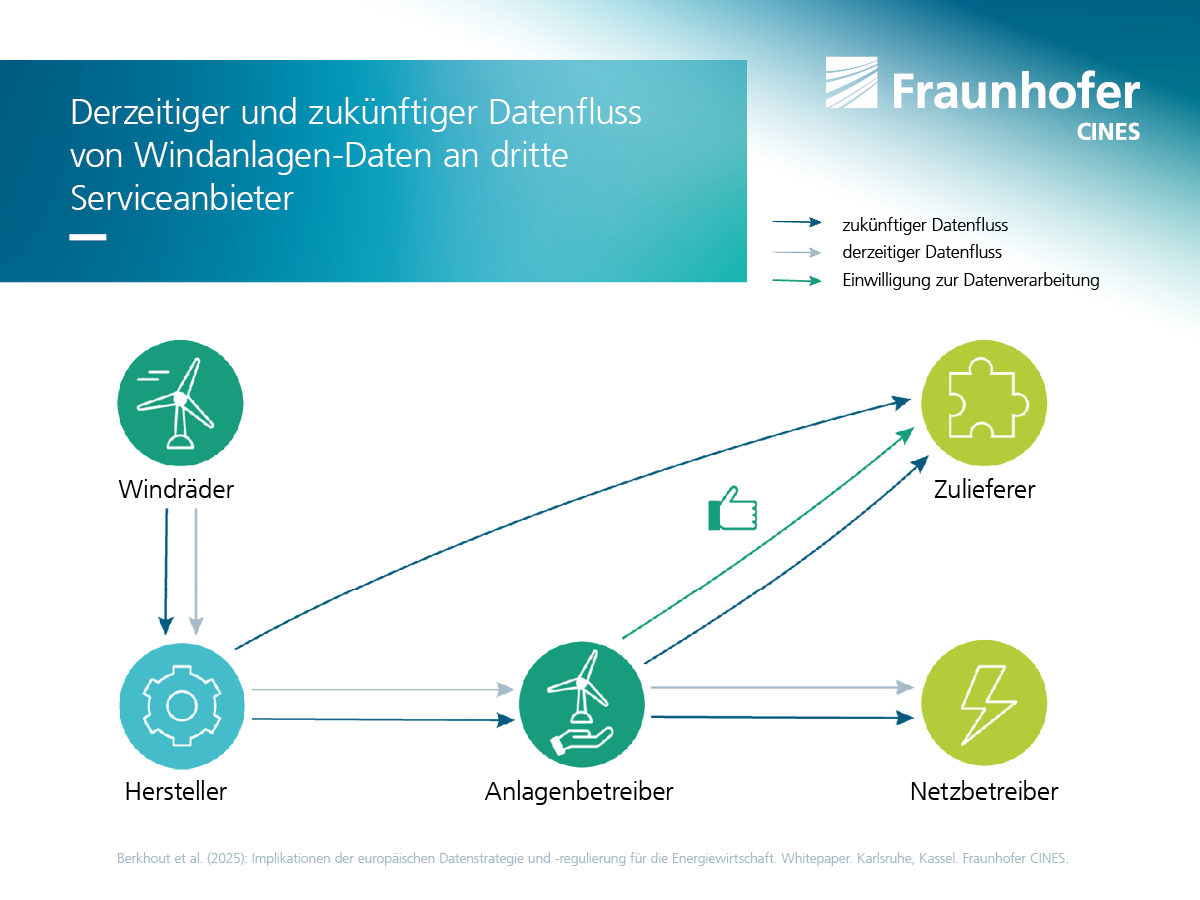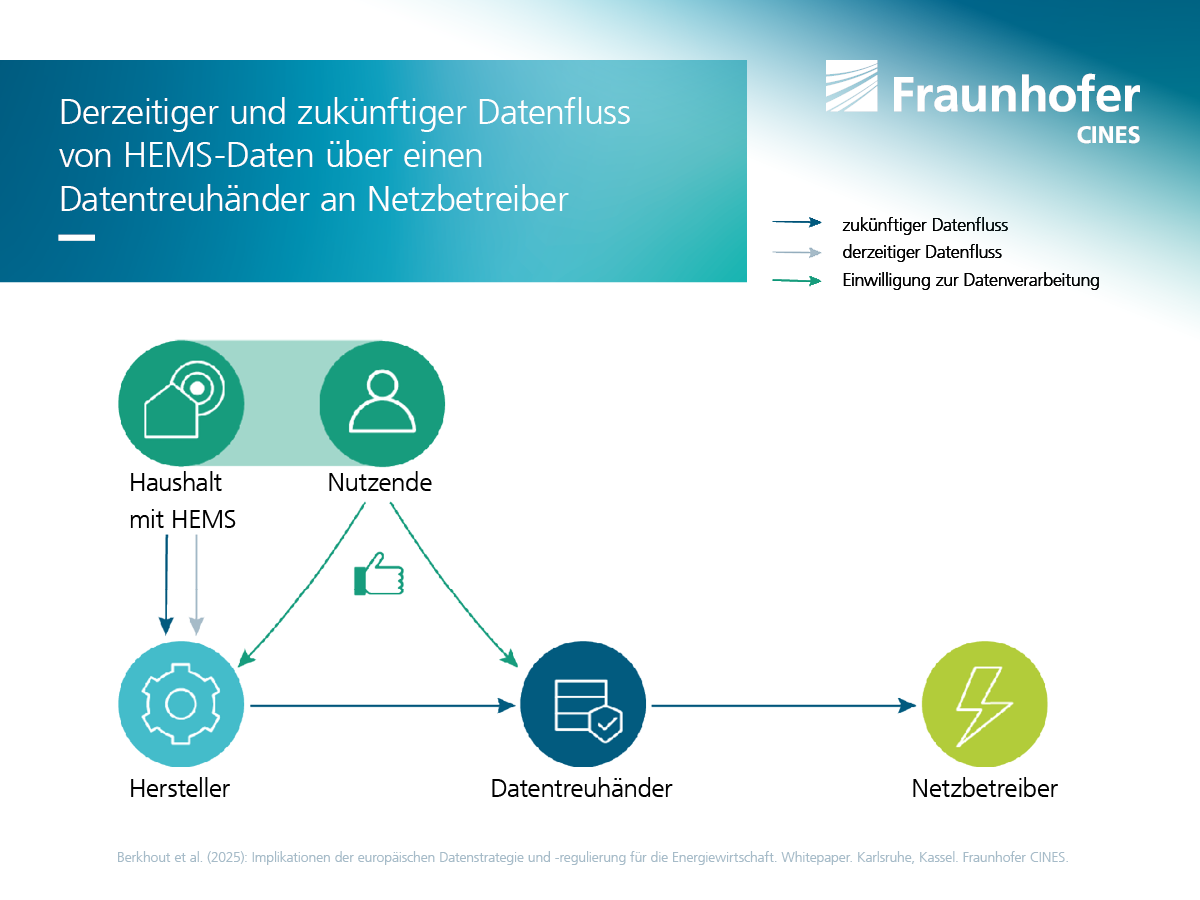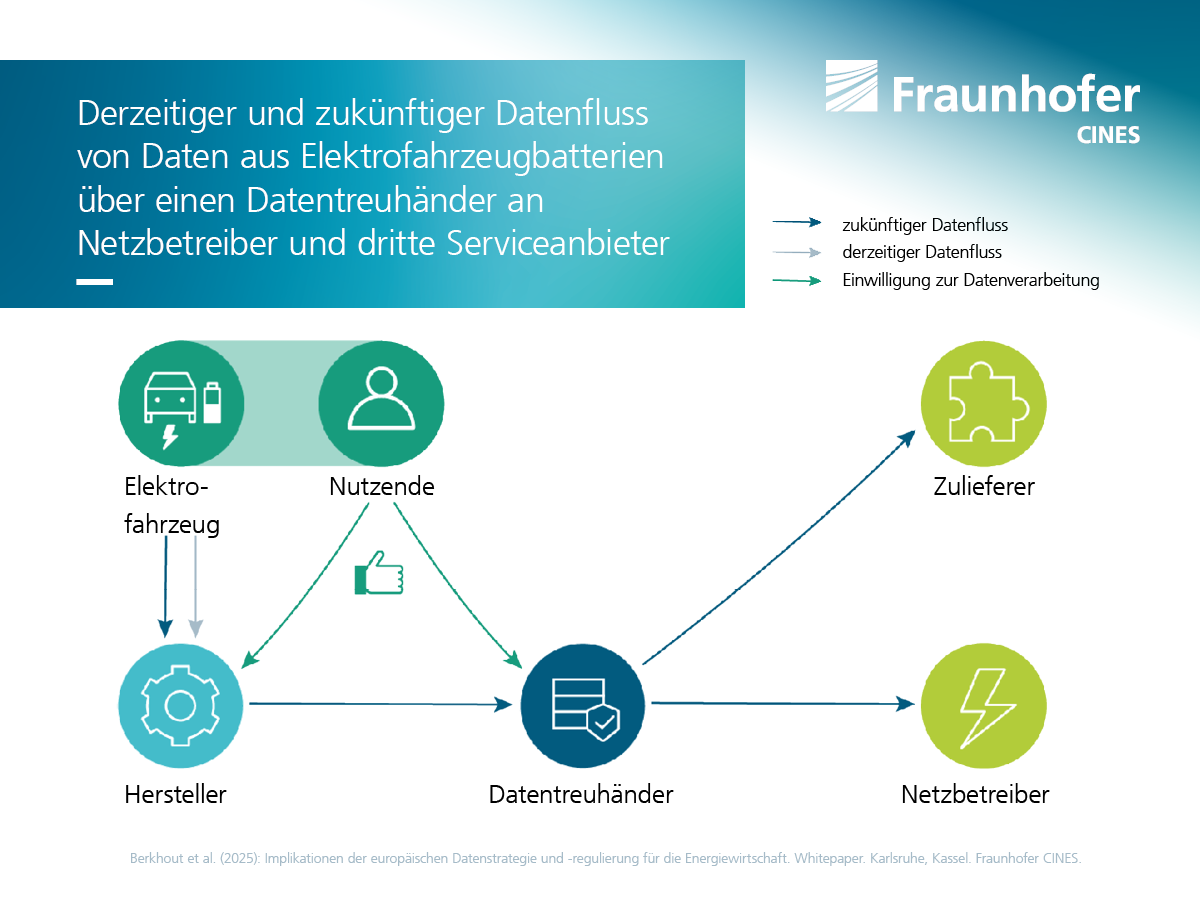What the European data strategy means for the energy industry.
As part of its data strategy, the European Union (EU) has created a far-reaching legal basis for digital value creation through data in Europe – including in the energy industry. While the Data Act (DA) greatly expands data availability in the energy system, the Data Governance Act (DGA) regulates trustworthy transaction options for this data. In their new white paper, researchers from the Fraunhofer Cluster of Excellence “Integrated Energy Systems” (CINES) describe how data exchange can take place under these conditions in three energy industry scenarios. They advise affected companies to prepare for the coming digitalization with a data strategy.

With the Data Act, the EU aims to make data from the use of digital products more readily available to all parties involved. This should facilitate data-driven innovation in Europe and ensure that the value created is distributed more fairly. Most of the provisions of the regulation, which has already formally entered into force, will take effect on September 12 this year, with further steps to follow by September 2027. “The new regulations open up immense opportunities, including in the energy industry,” says Volker Berkhout, lead author of the white paper. “Our future energy system based on renewable energies in particular depends on the intelligent, digital networking of its components.”
Under the regulations that will apply in the future, operators of wind turbines, for example, will be entitled to all data generated during the use of the turbines. This includes extensive sensor data, which is essential for operational monitoring and predictive maintenance. Until now, the plant manufacturer has had exclusive access to this data as the data owner and has also sold the rights of use to the operators. This gives them an advantage over third-party providers, particularly in the area of maintenance and service, and further use of the data is not possible. “The Data Act will give operators extended access and rights of use to the data in the future,” explains Berkhout. This means that the data will also be available for other services and applications. “Where usage data is currently tied to manufacturers and their service partners, opportunities will open up in the future for additional innovative products and services with additional companies that can further optimize the operation of capital-intensive equipment,” says Berkhout. This includes, among other things, external software services for early fault detection and condition monitoring of individual components directly by the supplier.
Challenges in sharing the data that becomes available lie in particular in data protection and the protection of intellectual property. For example, data from home energy management systems (HEMS) and data from the battery management of electric vehicles will become increasingly important for energy suppliers and grid operators in the future. At the same time, data on private electricity consumption is also personal and subject to the GDPR, while battery manufacturers want to avoid reverse engineering from battery management data in order to protect sensitive know-how. Here, the Data Governance Act (DGA) provides for various forms of data donation and data trust models. These are intended to ensure that both the protection interests and the purposes of data transfer are respected when data is shared. “The DGA provides us with the legal basis for resolving conflicts of interest and objectives in the use of the data that is being released,” summarizes co-author Dr. Marian Klobasa. “This is a key factor in the flexible integration of households and electric cars into the future power grid.”
In addition to the opportunities presented by the new regulation, CINES researchers are also highlighting its risks and challenges. The data trusteeship models in the Data Governance Act in particular are currently still subject to legal uncertainties and cost risks. Companies in the industry now need to take a close look at the new obligations and opportunities, says Volker Berkhout: “For equipment manufacturers, it is not enough to simply make usage data accessible. They must ask themselves how they can further develop their role and value creation in the digital ecosystem—together with their customers. Energy suppliers and other service providers in the energy sector should be aware of their upcoming rights and can take possible applications for these into account in their digital and data strategy.”
At the industry and sector level, associations or intermediary organizations can contribute to the standardization of data exchange or even act as data trustees themselves. The specific roles of such organizations in the future data economy still need to be clarified, depending on which problems they solve through trust models. In the best case scenario, these are recommended due to their organizational integrity and the trust they enjoy among market players.
Download and Further Information
Recommended citation format:
Berkhout, Volker; Klobasa, Marian; Martin, Nicholas; Karaboga, Murat;
Bergsträßer, Jonathan; Wickert, Manuel; Du, Jungsong; Streblow, Rita; von
der Heide, Lukas; Welisch, Marijke (2025): Implications of European Data Strategy and Data Regulation for the Energy Sector. Whitepaper. Karlsruhe, Kassel. Fraunhofer CINES.
 Cluster of Excellence Integrated Energy Systems
Cluster of Excellence Integrated Energy Systems

